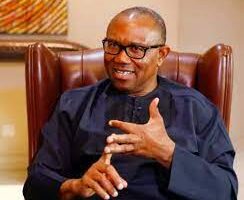As the electricity supply takes a dive for the worst in the country, the owners of the electricity companies have not stopped smiling to the bank and this is possible because of the curious provision in the Multi Year Tariff Order (MYTO) which provides for a curious tariff called fixed charge. MUSA ADAMU reports.
Depending on where you are, every electricity consumer in the country pays between N500 to N1000 to his utility provider irrespective of the situation of power supply to his house or business every month.
Through this conduit, the sum of N4 billion was realised every month of 2012 according to government figures. And it should be noted that this was even when government was still in charge and knowing how ineffectivegovernment is in revenue collection, it would not be out place to suppose thattoday the private companies who are now in charge have doubled the collection.
Fixed charges are automatically deducted from consumers with prepaid meters at the point of credit purchase, while post-paid customers have theirs factored into their monthly bills.
Put differently, fixed charge is that charge a customer must pay for having the honour of allowing an electricity cable connected to his house irrespective of whether this cable is not worth more than a cloth drying rope.
As expected, Nigerians have not taken this lying low and each opportunity they get, they demand explanation and asked even more questions as the authorities try to provide answers to this policy which defy logic.
But the Chairman of the Nigerian Electricity Regulatory Commission (NERC), Dr. Sam Amadi, insists it is a policy Nigerians must bear with patienceand understanding in order to encourage investors into the sector.
“We consider it of utmost importance to always explain to the consumers that the tariffs they pay are fair, reasonable and necessary to guarantee continuous improvement in electricity supply to Nigerian homes and businesses,” he said.
To explain to consumers why they have to pay more for non-existing electricity, NERC embarked on a series of meetings with consumers, civil society groups and professionals across the country, a move that for obvious reasons have not yield any favourable results. This is because none of these stakeholders have spoken in support of the policy.
With the growing disquiet on the policy among Nigerian electricity customers however, it appears Dr. Amadi would need to do more to convince Nigerians to continue to pay for service not rendered. Some Nigerians have reasoned that with an average of N4 billion accruing to the companies every monthly, they don’t need to do the needful to improve their services for the benefit of their customers or to improve their revenue generation.
“The implication of the fixed charge is that whether or not a consumer was supplied electricity in a month, the consumer must pay the charge to the suppliers. This charge ranges from N500-N1000 monthly for residential consumers and from N2,000-N180, 000 for industrial consumers,” an Energy Correspondent quipped.
As a sign ofthis aloof attitudeby these companies towards customers’ plight is the seeming contentment to continue to bring estimated bills to customers every month and their refusal to supply pre-paid meters as understood before they took over. Of course, knowing that Nigerians are not paying for what they consumed currently, these companies would be shooting themselves on the foot if they honoured their pledge.
But who speaks for Nigerians when the regulator only finds comfort in speaking in defence of the non-performing companies than siding with the party being robbed. But, Nigerians are not keeping quite; they are speaking out.
An Abuja resident, Sodeinde Sunday described the fixed charge as a way of robbing customers.
“It is nothing but daylight robbery because I can’t see what they are using the money for. Why should I be paying a fixed charge of N700 every month in addition to my normal electricity bill?
“I am on pre-paid meter and everytime I go to their office to recharge, I am always left confused. Last month, I went there with about N3000 with the hope of buying enough units to serve my flat for a long time but by the time they made their computation, deducting fixed charges and all, I was left with virtually nothing. I see the electricity people robbing me; it is as simple as that,” she said.
Similarly, Governor Adams Oshiomhole of Edo State was widely reported in the media speaking out against this practice, saying he had the duty to speak in the face of injustice.
He was particularly, reported to have kicked against the N750 monthly fixed charge collected by the Benin Electricity Distribution Company (BEDC), saying it amounts to extortion and exploitation of electricity consumers in the state.
The governor, who held a meeting with the management team of BEDC led by Mrs.FunkeOsibodu, the Benin Forum, led by Chief David Edebiri and the civil society organisations (CSOs) in the state, said fixed charges and estimated tariff by the electricity company was not only irresponsive, but crude and criminal.
He made it clear that as an elected person he cannot be silent to this type of exploitation by one company which claimed that because “there is somebody in Abuja or somewhere responsible for generation, transmission of electricity is not the matter because from what I have gathered from the various speakers, it is certain that what is being done in Edo does not exist in other states.”
Although, it is clear that the authoritieswould wished that the issue surrounding the fixed fizzles out with time, it appears this is one issue Nigerians are not prepared to bear without some rumbling, especially in the face of this excruciating state of power supplies in the country. This can only mean the burden of provewhy Nigerians must “cooperate” with this policy is that of NERC to discharge, a duty the commission is yet to carry out successfully.



